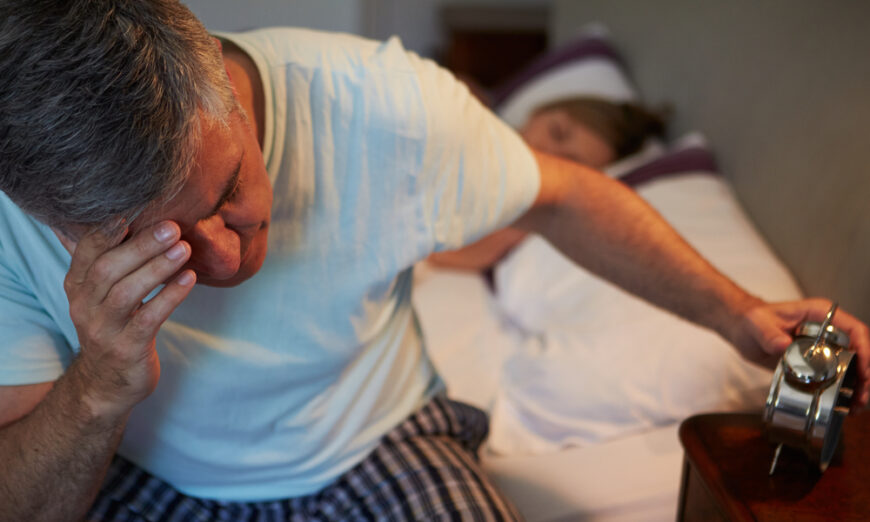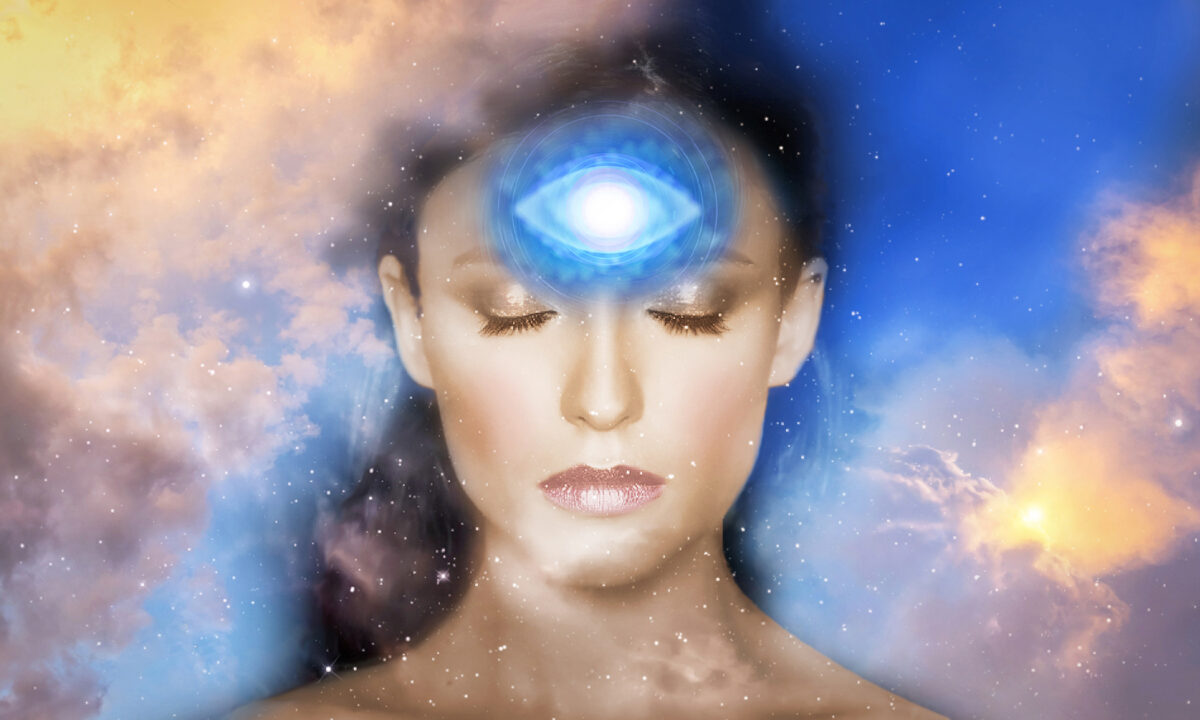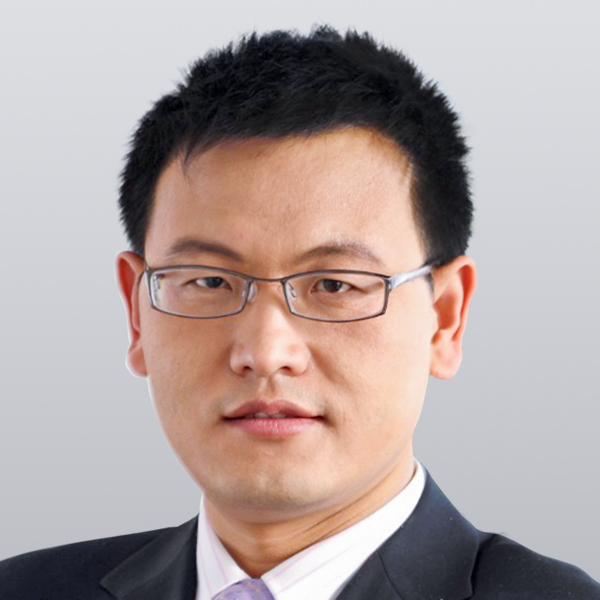Doctors Discover Our Pineal Gland—Our ‘Third Eye’—Is More Like Our Regular Eyes Than We Thought
The pineal gland in the human brain possesses structures remarkably similar to those in our eyes. It also has strikingly similar faculties. This gland has cells that act as light receptors, as our retina has, and a structure comparable to the vitreous, the gel-like substance between the retina and lenses of our eyes. Something like a lens also exists in the pineal gland.
Scientists are still learning much about the pineal body. It has been known in both Eastern and Western belief systems as the seat of human consciousness. Eastern spiritualism holds that eyes exist all over the body in the form of apertures—acupuncture points. Western science is also coming to grasp that the pineal body is a kind of “third eye.”
For years, scientists recognized similarities between the pineal body and our eyes. In 1919, Frederick Tilney and Luther Fiske Warren wrote that said similarities prove the pineal gland was formed to be light-sensitive and possibly have other visual capabilities.
More recently, in 1995, Dr. Cheryl Craft, chair of the department of cell and neurobiology at the University of Southern California, wrote about what she called the “mind’s eye.”
“Under the skin in the skull of a lizard lies a light-responsive ‘third eye’ which is the … equivalent of the bone-encased, hormone-secreting pineal gland in the human brain. The human pineal is denied access to light directly, but like the lizard’s ‘third eye,’ it shows enhanced release of its hormone, melatonin, during the night,” she wrote. “The pineal gland is the ‘mind’s eye.’”
A bundle of nerve fibers connects this to the posterior commissure (another part of the brain that is not well-understood).
In the 1950s, researchers uncovered the pineal body’s ability to sense light and produce melatonin corresponding to the light levels it detects. It, thusly, controls important rhythms in the body and also affects the reproductive and immune systems. The pineal body was previously thought to be vestigial, that is dormant; this find revealed that it actually serves important functions.
In May 2013, another discovery was made which could also change the way the pineal body is understood.
A rat’s pineal body produces N,N-Dimethyltryptamine (DMT), it was found, something that organic beings produce but is (again) not well-understood. This is interesting because it is known that the ingestion of DMT can induce psychedelic experiences characterized as being spiritually intense.
Dr. Rick Strassman, with approval from the U.S. government, conducted research at the University of New Mexico in the 1990s where he injected DMT into human volunteers. It was Strassman who termed DMT the “spirit molecule.”
The presence of DMT in the pineal glands of rats was confirmed at the University of Michigan by Dr. Jimo Borjigin and at Louisiana State University by Dr. Steven Barker. Their research was partially funded by the Cottonwood Research Foundation, headed by Dr. Strassman, which supports scientific research into the nature of consciousness. Their study was published in the journal Biomedical Chromatography.

Frequent Urination at Night: 3 Types, and How to Treat It
FEATURED UROLOGY
Although nocturia (frequent urination at night) is not a serious disease, it can worsen one’s quality of sleep and even endanger one’s health. Many people think that nocturia is typical of the elderly, but in fact, young people may also suffer from it.
According to the International Continence Society, “nocturia” is defined as the manifestation of “waking to pass urine during the main sleep period.”
Guo Yijie, a Traditional Chinese Medicine (TCM) practitioner, wrote in a Facebook post that the total amount of urine during sleep at night is about a quarter to a third of that during the day.
After falling asleep, the body secretes an “antidiuretic hormone,” which reduces the amount of urine at night to facilitate a good night’s sleep. However, if the secretion is reduced for whatever reason, the amount and frequency of urination at night will increase, and sleep will be interrupted.
She said one or two times of nocturnal urination during an average sleep time of seven to eight hours is normal. If your sleep is interrupted more than twice, and every time you wake up, you have a strong urge to urinate, it is considered abnormal. You’d better find out the cause and deal with it.
TCM View of Fluids
According to TCM, body fluids first enter the stomach where they are transformed and separated into pure and impure. Pure part goes to the spleen, and the impure part goes to the small Intestine and further separation. The lungs control dispersion of pure part of body fluids (coming from spleen) to the space under the skin and send part of fluids down to the kidneys and bladder.
Kidneys are extremely important in the physiology of blood fluids. TCM describes the urinary formation in the kidneys and bladder as the “vaporization process.” The kidneys’ vaporization function ensures the proper distribution of body fluids and excretion of urine by the bladder.
Everything is interdependent and mutually interactive according to TCM theory; the formation and excretion of urine is supported by every part of the entire internal system. Besides the kidney, it also depends on the spleen, lungs, and liver to coordinate digestion and absorption functions. Guo said, one symptom can hardly be attributed to just one single factor. In addition to replenishing the kidney qi, other organs also need improvement.
In TCM, qi, blood, and body fluids are the most important fundamental substances necessary for life. The concept of “qi” can be understood as the “energy” or “vitality” that constitutes life in the body. This energy flows throughout the body to maintain life activities. Illnesses or other conditions only appear when there is a qi imbalance or deficiency in the body.
“Blood” in TCM theory is mainly responsible for nourishing and keeping the body moist. Internally, it circulates to the organs, and externally, it flows to skin, flesh, bones, and muscles. The pattern of blood deficiency gives rise to many symptoms that indicate poor circulation, low energy, and diminished vitality.
Identifying 3 Common Types of Nocturia
- Liver stagnation and blood deficiency type: symptoms manifest as waking up at night to urinate many times but without much urine output each time; often accompanied by emotional stress, dry skin, dry mouth, dry eyes, hard stools, and even feeling the effect of dryness and heat, and other symptoms.
- Spleen deficiency and dampness type: nocturia is frequent, but the urine volume is normal, about 6.8 to 10 fluid ounces each time, but accompanied by spleen and stomach symptoms: prone to flatulence, nausea, poor appetite, diarrhea, pale tongue and with a white and thick tongue coating. In this type, the condition of nocturia is aggravated after drinking cold beverages.
- Kidney qi deficiency type: apart from having a large amount of urine at night, at around 5 to 7 p.m. when the meridians meet the kidney meridian, frequent urination is apparent, and it is often accompanied by renal symptoms, such as soreness of the waist, the knees, lower back and muscles and bones, and the like. Tinnitus, dizziness, and easy fatigue are common symptoms of this type.
TCM has discovered that there is a “meridian” system in the human body that is responsible for transporting “qi” and “blood” throughout the body. The two substances circulate to maintain balance and stability in various tissues and organs.
There are 12 main meridians corresponding to the 12 internal organs, from which they circulate further towards the hands, feet, head, and face. When things go wrong with one of the internal organs, discomfort will also occur at various points along the corresponding meridian paths.
The 12 main meridians follow specific time schedules and pathways. Qi is continuously circulating through the meridians in a daily cycle. At certain times, both qi and blood have maximum flow in particular meridians.
For example, from 3 a.m. to 5 a.m., meridian qi mainly flows through the Lung Meridian and people with lung problems usually have a severe cough at this time From 5 p.m. to 7 p.m., meridian qi mainly flows through the Renal Meridian and this time is good for exercise and helps the kidneys to excrete toxins.
In TCM, it’s believed that “man and nature are one.” Therefore, the annual, seasonal, daily, and time cycle changes in nature are closely related to the cycle changes in human physiology and pathology. This theory is similar to the “biological clock” of modern science.
According to the TCM theory, as long as you can follow this routine to recuperate, you will achieve the effect of health preservation.
Several Common Reasons for Nocturia
- Insufficient secretion of the antidiuretic hormone at night, and enlarged prostate in elderly men, which squeezes the bladder and urethra, resulting in frequent urination as well as poor urination.
- Chronic diseases such as diabetes or hypertension.
- Side effects from medication.
- In young people who are often anxious and nervous, frequent nocturia occurs if they drink too much water before going to bed, or drink stimulating beverages such as tea or coffee, sugar-sweetened beverages.
- Inflammation or infection are also possible reasons.
6 Treatments That Might Help
- Drink the right amount of water, at the right time: The recommended amount of drinking water per day is about 6 to 8 cups; the amount can be increased, depending on the situation. However, it’s better to have water slowly and take small sips. In the three or four hours before going to bed, it’s best to drink less water.
- Limit certain beverages: Reduce the amount of stimulating beverages, such as tea, coffee, and sugary, ice-cold beverages.
- Eat fewer fruits: Fruits contain a lot of water and sugar, and most of them are cold. Avoid eating citrus fruits in particular.
- More exercise and exposure to the sun: This promotes relaxation and helps circulation, which can help improve yang qi and stabilize sleep at night.
- Warm compresses on the lower abdomen (the “dantian”): Warm the lower abdomen; this will adjust and invigorate the kidney qi.
- Manage chronic diseases: such as diabetes and hypertension, and take good care of problems such as prostatic hypertrophy.
Guo said that people who experience nocturia are advised to follow the above six self-help tips. If your condition does not improve after trying these tips, it is recommended that you consult a TCM practitioner who can assess your condition and prescribe the most suitable remedy to help you improve your nocturia.



